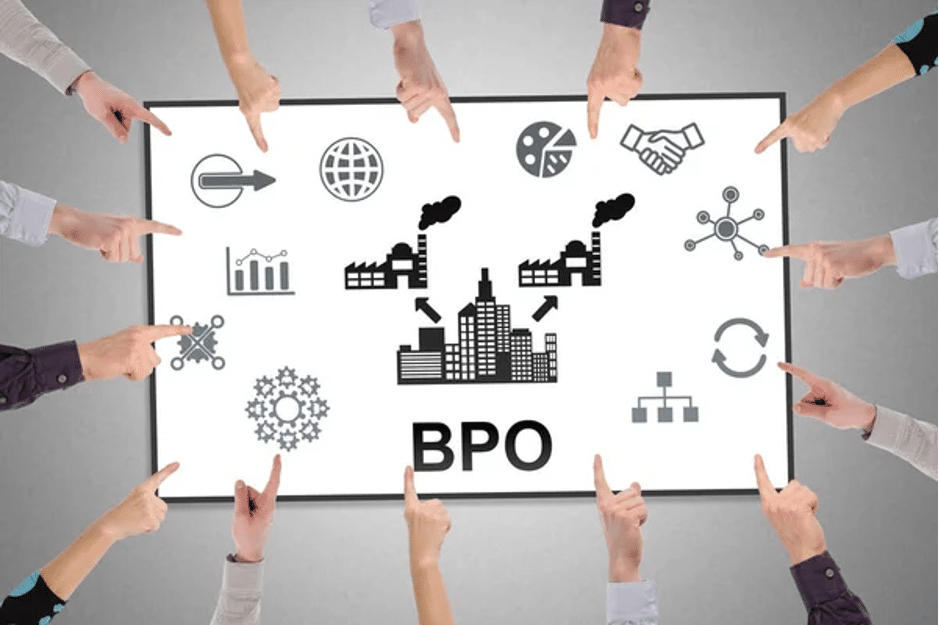In today’s ever-evolving business world, call center automation and business process outsourcing (BPO) form the key link between businesses and their customers. Both service models not only play a vital role in ensuring customer satisfaction but also play a central role in optimizing business processes.
However, there are significant differences between them. Our aim in writing this article is to explore these differences in depth, compare the differences between call centers and BPO in terms of service scope, mode of operation, cost structure, etc., and analyze their application in various business scenarios. Through this article, we hope to provide readers with clear guidance and help them choose the most appropriate service model for their business needs.
What is a Call Center
A call center is the hub of communication between a business and its customers and is primarily responsible for handling incoming and outgoing calls. It is a specialized department that focuses on handling customer inquiries, complaints, order processing, and providing information about products or services.
Main functions
- Customer Service: answering customer inquiries, handling complaints, and providing necessary assistance and support.
- Sales Support: Sales by telephone, promoting products or services and increasing sales.
- Technical assistance: provide technical support to customers who use products or services.
- Market Research: collect market information and customer feedback to provide support for corporate decision-making.
Various types of call centers
- Internal Call Center: Internal call center is a department within an enterprise, directly subordinate to that enterprise, mainly dealing with customer communications related to its own business. Characteristics: More focused on the specific business needs and company culture of the enterprise, able to provide more personalized customer service.
- Outsourcing call center: Outsourcing call centers are operated by third-party service providers to provide telephone reception services for multiple enterprises. Characteristics: Help companies reduce operating costs, while providing specialized services. This type of call center is usually able to handle a wider range of customer needs, including services in different languages and time zones.
What is BPO
BPO, or Business Process Outsourcing, refers to the practice of companies delegating the management and execution of certain non-core business processes to specialized external service providers. This practice is primarily designed to improve efficiency and reduce costs, while allowing companies to focus on their core business.
Scope of Business Process Outsourcing
- Customer service: including customer inquiries, complaint handling, after-sales support, etc.
- Human Resource Management: e.g. recruitment, salary management, staff training, etc.
- Finance and Accounting: including account management, invoice processing, budget analysis, etc.
- Supply Chain Management: procurement, inventory management, logistics arrangement, etc.
- Information Technology Services: IT infrastructure management, software development and maintenance, etc.
Different types of BPO services
Front office services
- Definition: Front office services directly interact with customers, they are the “window” of the enterprise facing customers, representing the corporate image externally.
- Examples: Including telephone customer service, online chat support, customer relationship management, and so on.
- Focus: the core of front office services is to improve customer satisfaction and enhance customer experience.
Back-office services
- Definition: Back-office services mainly deal with the internal business processes of an organization, which are usually invisible to customers but vital to business operations.
- Examples: data entry, financial processing, HR management, administrative support, etc.
- Focus: The main goal of back-office services is to improve operational efficiency, reduce costs, and ensure the smooth running of business processes.

Key Differences Between Call Centers and BPO
While call centers and business process outsourcing (BPO) intersect in some ways, they differ significantly in terms of their core functions, scope of services, objectives and operating models. Below are their key differences:
Core Functions and Scope of Services
Call centers focus primarily on services related to telephonic communications, such as customer inquiries, support, sales and market research. They primarily handle incoming and outgoing calls and provide immediate or scheduled customer interactions.
BPOs, on the other hand, provide a broader range of business process management services that cover areas beyond customer service, such as human resource management, financial services, administrative support, and IT services, etc. BPO services are not limited to telephonic communication, but also include data processing, document management, and so on.
Objectives and Strategic Focus
The goals of call centers are to improve customer service quality and efficiency, and to enhance communication and relationship management with customers.
The objectives of BPO are more diverse, aiming to improve overall operational efficiency and reduce costs by outsourcing non-core business processes, and enabling organizations to focus on their core business.
Operating Model and Management
Call centers typically use centralized communications technology with a focus on managing efficient customer communications and rapid response.
BPO, on the other hand, emphasizes business process optimization and cross-discipline service delivery, requiring more complex project management and multi-disciplinary expertise.
Cost structure and investment
Call centers have a relatively small initial investment, focusing on communications equipment and agent training.
BPO may require a larger initial investment, especially in technology platforms and specialized talent, but in the long run, BPO can deliver more significant cost savings through optimization and outsourcing of processes.
Call Center Strengths and Challenges
Advantages
- Efficient customer interaction management: call centers are able to effectively handle a large number of customer inquiries and requests through a centralized communication system, ensuring timely response.
- Focus on improving customer satisfaction and service quality: Professional customer service teams are dedicated to solving problems and providing information, thus enhancing customer satisfaction and loyalty.
Challenges
- Technology upgrades: As technology continues to advance, call centers need to regularly update their communication and data management systems to remain competitive.
- Employee training: Employees must be continuously trained in skills and product knowledge to maintain service quality.
- High Shrinkage: Managing employee attendance and maintaining a low turnover rate is an ongoing challenge for call centers.
Advantages and Challenges of BPO
Advantages
- Business Process Optimization and Cost Savings: By outsourcing non-core business processes, BPO helps companies reduce their burden, optimize operations and save costs.
- Access to expertise and global markets: BPO firms usually have expertise in various fields and can provide multinational services, allowing companies to easily access global markets.
Challenges
- Cultural and communication barriers: When outsourcing across borders, cultural differences and communication issues may affect service quality and efficiency.
- Data Security and Compliance Issues: With data security regulations constantly changing, staying compliant and protecting customer data is a major challenge for BPOs.
Call centers and BPO in modern business
- In the financial sector, call centers deal with customer account inquiries, transaction support, etc., while BPOs may be involved in risk management, loan processing, and other services.
- In the insurance industry, call centers provide claims processing and customer consulting services, while BPOs may take on policy administration, claims process outsourcing, and so on.
- In the healthcare sector, call centers are usually responsible for appointment services and patient counseling, while BPOs may be involved in medical records management, insurance claims processing, and so on.
- For the retail sector, call centers help handle orders, returns and customer complaints, while BPOs may provide inventory management and logistics support.
Conclusion
Through the in-depth analysis in this paper, we have clearly seen the major differences between call centers and business process outsourcing (BPO). Call centers focus on efficient customer interaction and communication management, concentrating on improving customer service quality and satisfaction. In contrast, BPO offers a broader range of business process management services, from customer service to back-end business processes such as finance, human resources and supply chain management.
Each of these two service models has its own unique strengths and challenges. While call centers excel in ensuring efficient customer communication, BPO is more effective in optimizing overall business processes and reducing operational costs. At the same time, they both need to constantly adapt to technological developments to improve service efficiency and quality.
The bottom line is that organizations must consider their specific business needs and goals when choosing a service model. For those who value customer service and instant communication, a call center may be the better choice. For those seeking to fully optimize business processes and reduce costs, on the other hand, BPO services may be preferred.
In summary, choosing a service model wisely is critical to achieving long-term success and sustainable growth for your organization. Enterprises should make decisions based on their business characteristics, customer needs and future development plans to ensure that the service model they choose best meets their needs.
